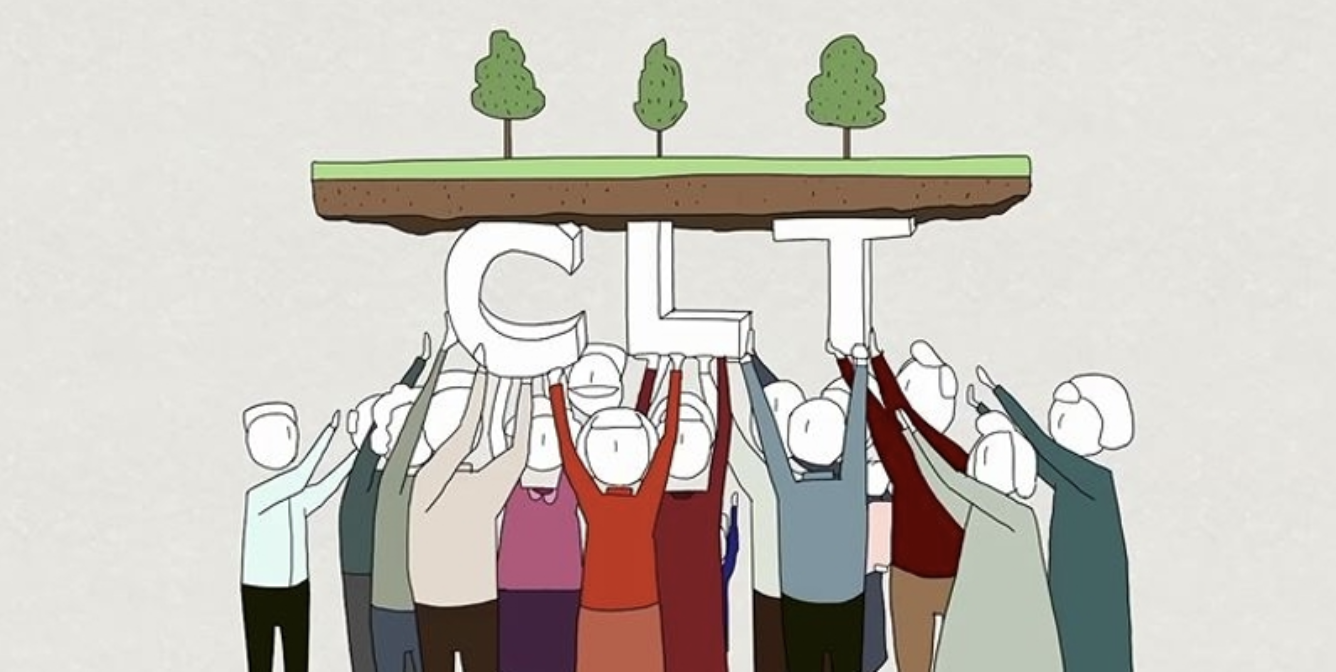
Kingston Land Trust and our role in CLT development
As a land trust, we have a special power granted by New York State Conservation Law to conserve land forever. Although we typically protect land for open space for the environment and community use, as an urban land trust, we aim to respond to the most pressing land needs, which currently include creating access to a permanently affordable housing market. We have been studying and promoting the Community Land Trust model, immersing ourselves in Kingston's housing issues and meeting with stakeholders and potential collaborators and consultants since 2017.
TapRoot Community Land Trust
After many years of supporting the formation of a local CLT, what began as the Kingston Land Trust CLT Organizing Group made up of local community member and non-profit partners became a separate organization with our support and the support of our organizational partner RUPCO: TapRoot Community Land Trust. TapRoot CLT will not only serve Kingston, but all of Ulster County. Most recently, they have primarily been focusing on fleshing out their core operational procedures, governing documents and business plan. We continue to be actively involved in this effort and are excited to keep you up to date on much more news to come! You can also join their mailing list by going to taprootclt.org.
What is a Community Land Trust (CLT) and how does it work?
Community Land Trusts help low and moderate-income families benefit from the equity built through home ownership, and at the same time preserve the affordability of these homes so that future residents will have the same affordable homeownership opportunities.
Relocation into Ulster county was already trending and has only increased as a result of COVID-19. Rising real estate prices in our area have moved homeownership out of reach to locals. CLT’s create affordable homeownership in perpetuity – any subsidy or grants embedded into the homes remain forever, making efficient use of public and private funds.
A Community Land Trust (CLT) creates permanently affordable housing by taking the cost of land out of the price of a home. It keeps housing affordable for future buyers by controlling the resale price of houses on CLT land through a ground lease and resale formula. Homeowners leasing CLT land under their home enjoy the security, control, ability to build equity plus potential tax advantages. If they sell their home, the resale formula ensures that the home remains affordable for the next family.
What is the history of Community Lands Trusts?
Civil Rights leaders established the first CLT, New Communities Inc., in 1969 in Albany, Georgia. Currently, close to 350 CLTs have taken up the call to promote land justice, increase individual and collective wealth and protect communities especially in historically African American neighborhoods. In addition to providing homeownership opportunities, many CLTs preserve land for affordable rental homes, community gardens, as well as for commercial and mixed-use properties.
Why is a community land trust needed?
- Proven model in other areas of the state and country as there are many successful CLT's
- Helps to stabilize neighborhoods and prevents real estate speculation on CLT homes
- Unlike renting, CLT homeownership helps families with modest income build equity and create generational wealth
- Brings homes back to their original intent, as shelter from the elements rather than investment tools.
I want to support this work...How do I get involved?
Join the TapRoot CLT mailing list and visit the TapRoot website to stay up-to-date and learn more.
CLT HISTORY and WORK
Current Work:
- Branding campaign: Website and Logo design
- Create CLT Homebuyer Info-session
- Integrate TapRoot homebuying process into RUPCO's Homeownership Center
- Finalize Ground Lease and high priority Policy and Procedures
- Board of Director expansion and board orientation and onboarding
- Pursuing all avenues of portfolio expansion
2023 Undertakings:
- Developed foundational organizational structure (i.e., bylaws, initial Board of Directors, 501(c)3, ground lease) for TapRoot to receive homes and ensure their permanent affordability
- Solidified partnership between TapRoot, RUPCO and KLT through Joint Venture (JV) agreement to provide administrative support
- Conducted outreach and education about CLT model and coalition building with key housing-focused organizations and groups
- Continue to rehab first set of homes to be placed in CLT and explore new housing opportunities
2020-2021 Undertakings:
- Support the Kingston CLT organizing effort (more below)
- Through participating in planning and community meetings
- Offering consultant input
- Sharing materials and resources
- Develop land-based plug-in services to housing nonprofits
2017-2019 Undertakings:
- In 2018, we launched our annual Land in Black Hands conversation, to showcase alternative models of ownership, including the Community Land Trust.
- We regularly met with national CLT expert, John Davis of Burlington Associates on how to launch a CLT in Kingston
- We regularly met with the Kingston City Land Bank to determine how to provide a permanent affordability track.
- We held or attended more than 50 partner and stakeholder meetings to assess the work that is already being done as well as the work that is needed, and how we can fill the gap, including Kingston Tenants Union (now Real Kingston Tenants Union) and Rise Up Kingston
- We met with regional efforts, including the Newburgh Land Bank, the Albany County Land Bank and Albany Community Land Trust, and participated in CLT-Land Bank development conversations in Poughkeepsie.
- We got trained in CLT formation through Grounded Solutions Network
- We presented about CLTs to spread the word about this model at the Successful River Cities Coalition, and the Bard Center for Environmental Policy.
- We hosted a community Comida y tierra dinner conversation in Spanish, with RUPCO and the Kingston City Land Bank as our guests.
